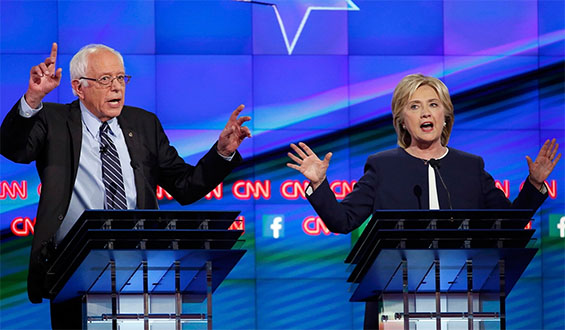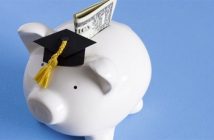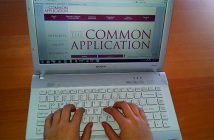
By Dale Schlundt
Unpredictable is a word that might be used to describe the current presidential primary debates – and it’s attributable to individuals in both parties.
What that has done for the young voter is catch their attention, if just for only a moment, a true improvement to the status quo. Looking at voter turnout in the previous presidential election illustrates the need to fill a gap. According to the United States Election Project, only 58.2 percent of the voting eligible population cast their vote, which points to the need of the politically active to educate those who fail to exercise their rights as Americans.
One who sat in a typical college class may not be surprised that when asking students about the debates there are only a handful individuals who are aware they even occurred. Some simply learn of it the following day through social media, others because a relative watched the debates. There are those who do indeed watch and are proactive in seeking awareness of candidate’s proposed policies.
However, what held true in every class I have asked was students’ knowledge of candidates’ boundary-pushing behavior. As many have previously pointed out, a significant percentage of citizens were diverted back to politics to just see those behaviors. Despite the lack of knowledge some students may have of our current political state, the antics displayed in this debate have offered educators a pedagogical tool that could help youth develop a true comprehension of the effect politics has on their lives and the effect they may have on politics through activism. The question is how we can go about harnessing their interest and turning it into meaningful knowledge.
When referring to educators, the list does not stop at secondary or post-secondary faculty. This list should include parents, grandparents, mentors, friends, and more. With Donald Trump proposing a ban on individuals based on religious beliefs, what grandchild would forego hearing the stories of a grandparent making the comparison of the principles behind the Japanese internment camps during World War II?
Bernie Sanders references the inequality of wealth in America, promoting a redistribution of those riches through regulation and taxation, which puts both parents and grandparents in a unique position to recall debates of the past. Preferably taking a non-partisan view, relatives may recall the multifaceted results seen by FDR’s federal intervention during the Great Depression or the argument of free market capitalism’s triumph during the Cold War era.
We should not use the similarities in these examples to dictate to others who to support today. Rather, we should use them as reference to facilitate an understanding of what points have merits, partial merits, or are perhaps are completely lacking. Ideally, the goal is to create opportunities to educate the younger generation and allow them to arrive at a balanced view of the domestic and foreign policies of today.
As we watch both the Republican and Democrat platforms evolve, it is interesting to see subtle changes within each party. The focus on minority groups, especially African Americans and Latinos, has once again drastically increased during the recent elections. These shifts are based on changes in demographics and the accompanying change in the voting base. Nevertheless, these shifts will have lasting effects, and these topics allow educators to raise the issues with the youth of America. Those who have studied the evolution of the public’s ideological beliefs and historical beliefs of political parties are constantly searching for changes in their own contemporary parties. Ultimately, that leaves the observer with a better understanding and judgement in terms of liberal or conservative platforms. Let us teach that judgement to our youth.
The downfall of debates with personalities such as we see in the 2016 presidential race is that many times the outlandish behavior overshadows the real issues that need attention. Much of what is said by candidates at all levels of office is done only to acquire votes rather than reveal the relevant positions they will pursue. However, having little understanding is better than none. Therefore, let us use the awkwardness displayed in these presidential debates to attract the youth and use the opportunity to open a dialogue so that relevant information may be infused. Through that discussion, students may develop and exercise the ability to be constructively critical, and eventually coming to their own conclusions on the important issues in the world they will inherit.
Schlundt: Use Presidential Debates To Spur Student Thought, Dialogue
0
Share.




